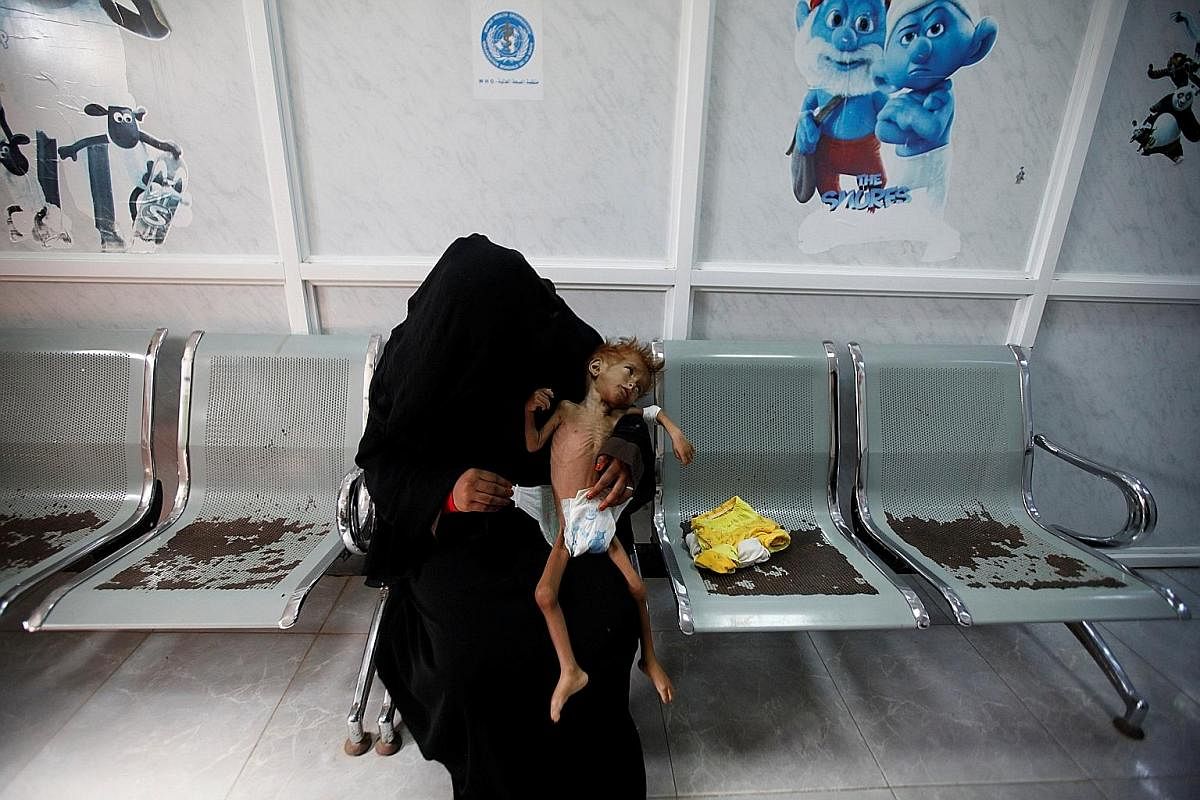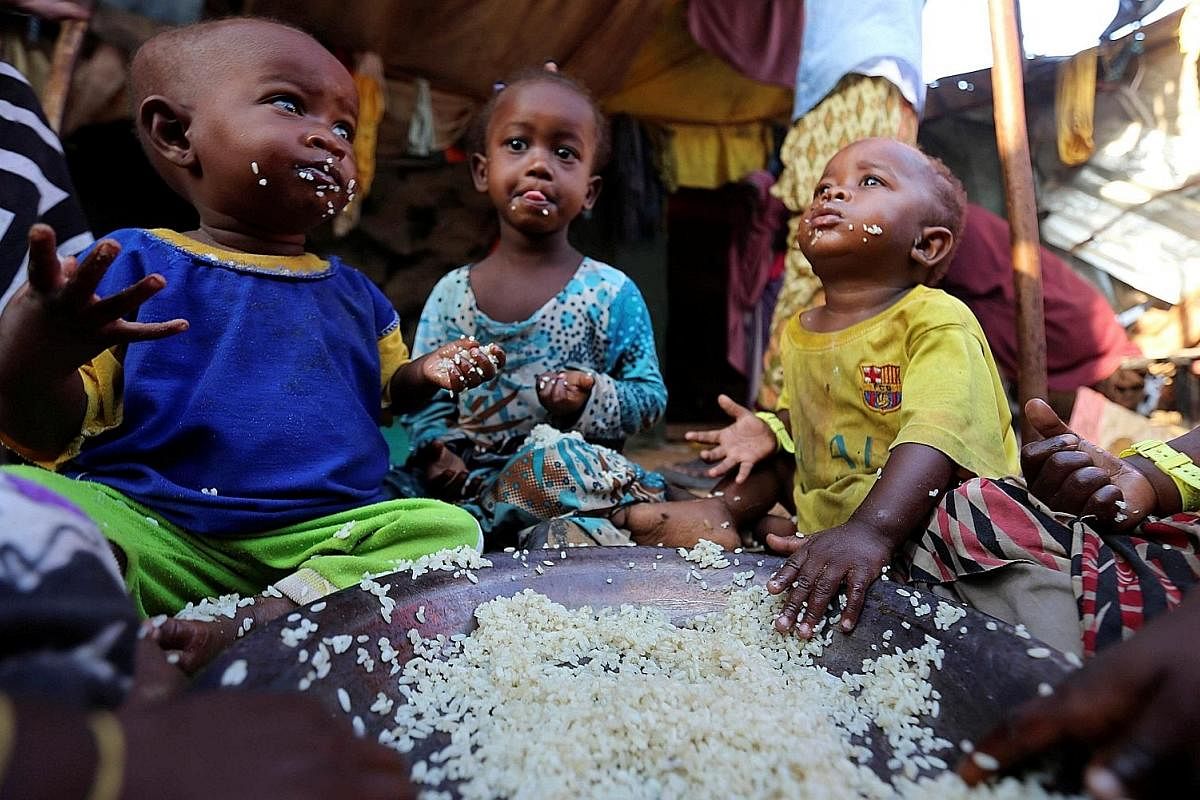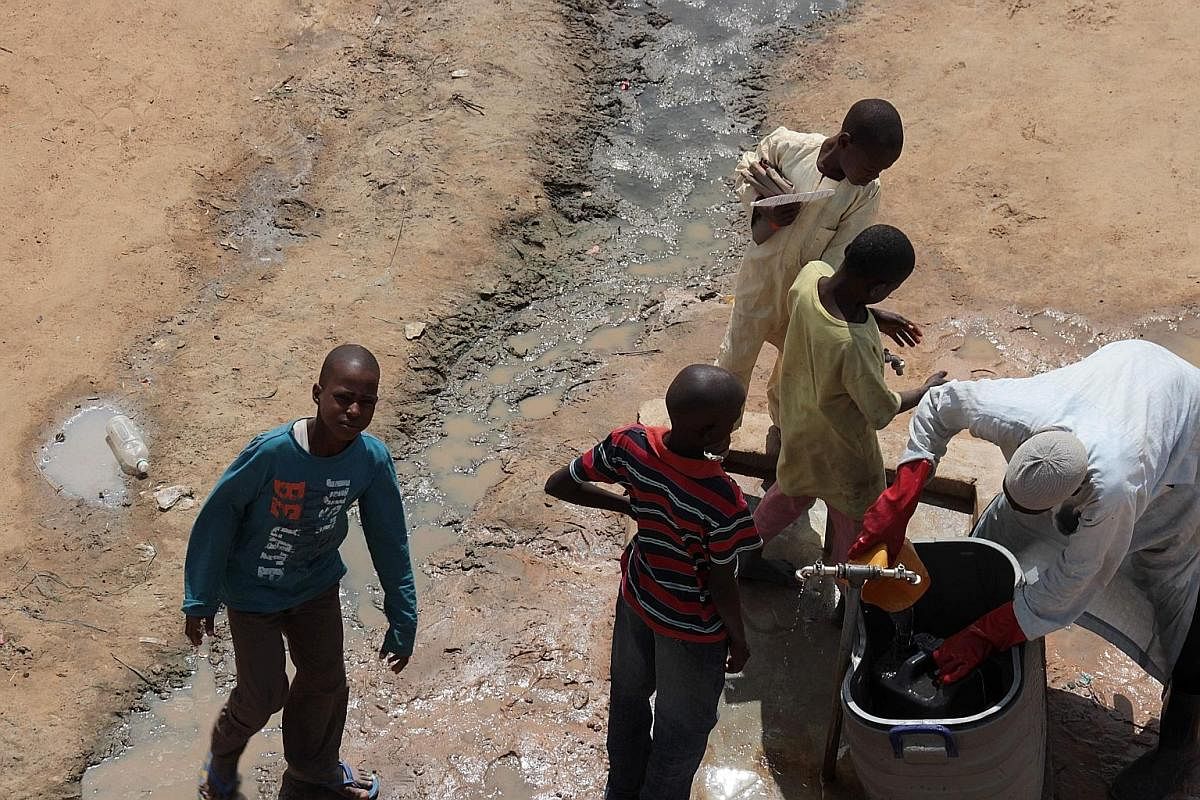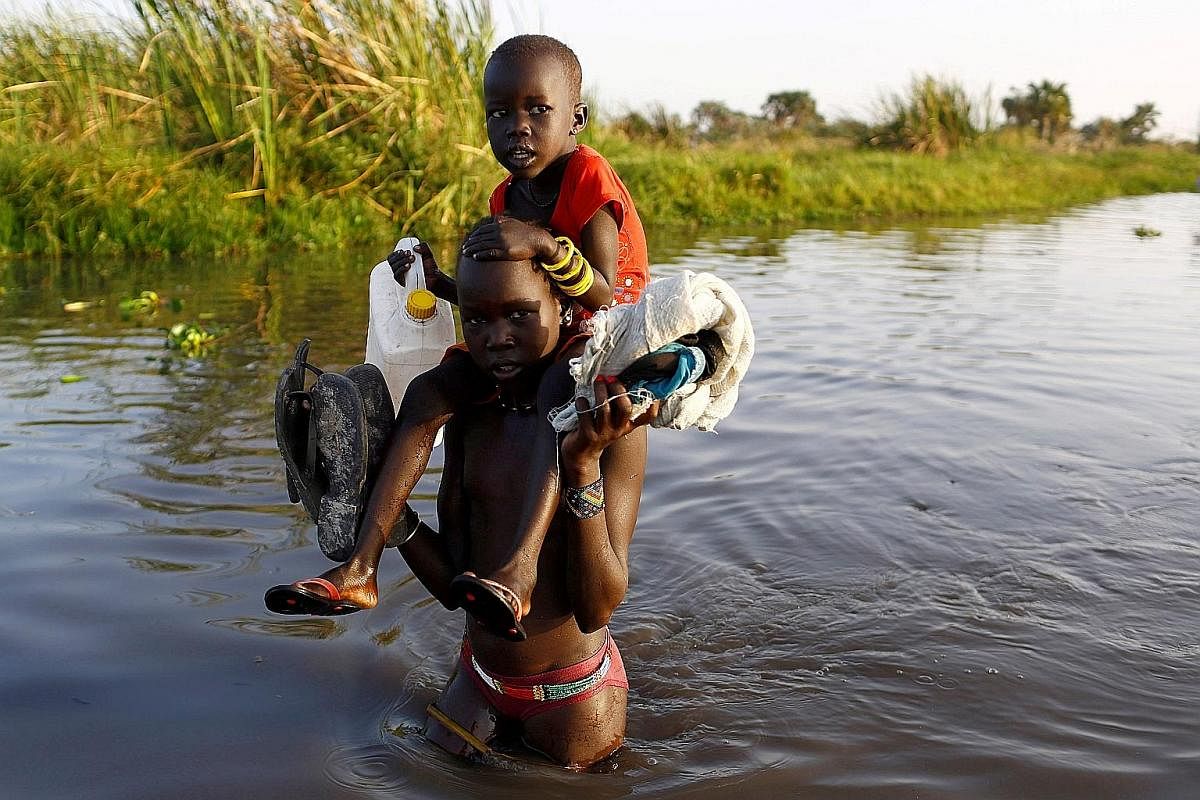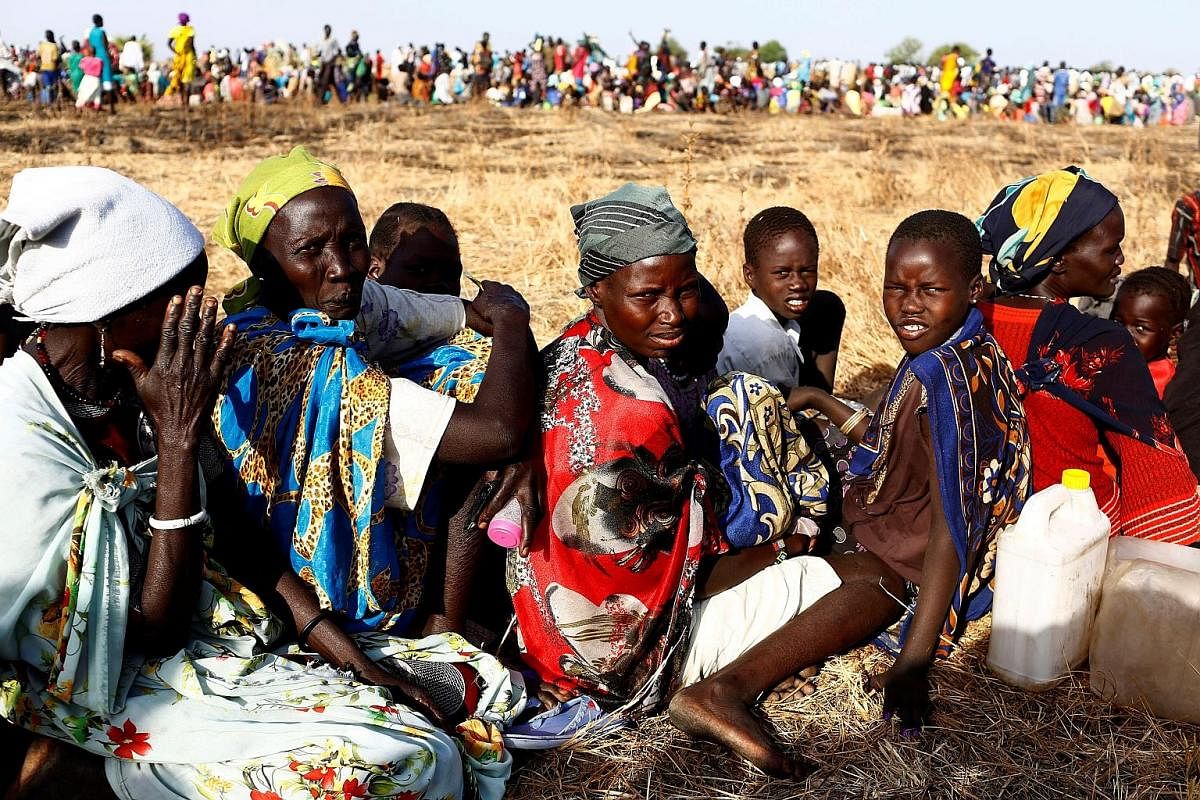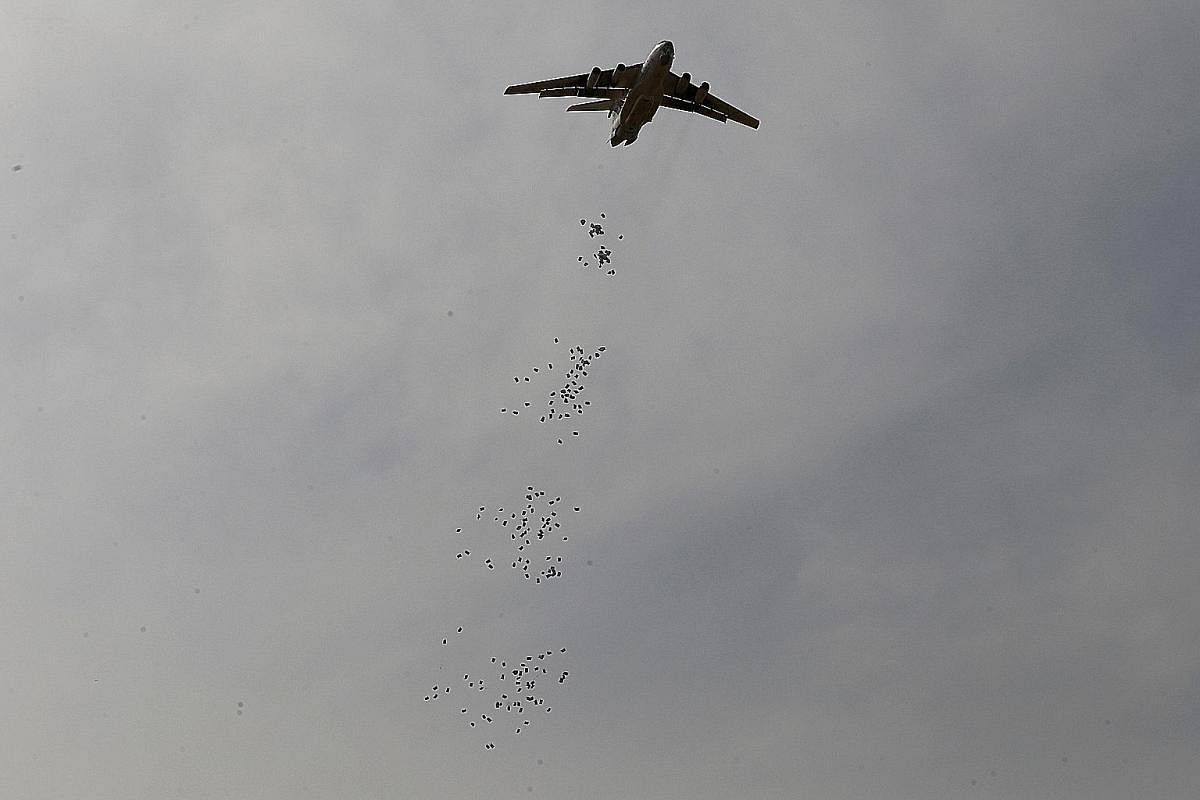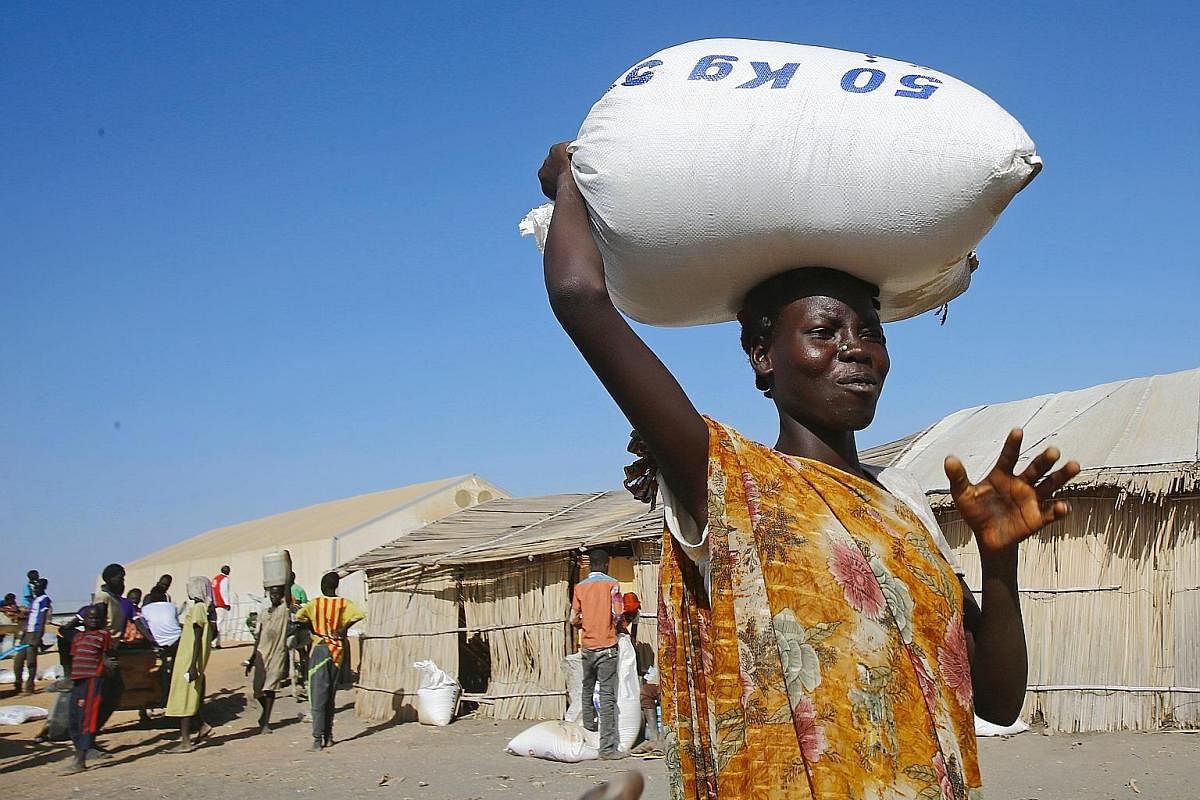"The last time I reached my field to harvest was in 2015."
Last month, the United Nations (UN) officially declared famine in Ms Nyal's home county Mayendit, in Unity state, about 400km north of Juba. This was the world's first official declaration of famine since 2011.
Last Friday, the UN warned that the world was facing its worst humanitarian crisis since the end of World War II, with more than 20 million people facing starvation and famine in four countries - Yemen, Somalia, South Sudan and Nigeria. Some US$4.4 billion (S$6.2 billion) in aid is needed by July to "avert a catastrophe".
Severe droughts are partly to blame. Some parts of Somalia, reports The Telegraph, have not seen rain in three years. Aid workers say over six million people are going hungry, while 71,000 malnourished children face a high risk of death.
Among them is one-year-old Abdirahman in the self-declared Republic of Somaliland. Tears rolled down his face but he was too weak to cry. His mother, 19-year-old Hinda Cadare, who is heavily pregnant with her next child, could only look on as he starved. She told The Telegraph she did not have the means to take him to the nearest clinic 32km away, nor to pay for treatment.
But she had still travelled from the countryside towards town. "In case my son dies, I have to have somewhere to bury him," she said, referring to the town's cemetery.
Those who remain in the parched countryside, now littered with the rotting carcasses of sheep and goats, have not fared better, says The Telegraph.
Ms Khadra Saeed has been surviving on one meal of rice a day and is so hungry she could not produce breast milk to feed her malnourished son. He died only seven days after he was born, and was buried unnamed because she could not find a sheep to be slaughtered in accordance with the local naming ceremony.
Eight in 10 livestock in Somalia have died, depriving the country's largely nomadic population of their food and income source. Crops have also failed.
Much of the food crisis facing these nations, however, is man-made, say experts. Wars have displaced vast swathes of the population from their farms and upended the rule of law.
War-wracked Yemen is a prime example, having been described by the UN as "the largest humanitarian crisis in the world", with two-thirds of its population, or 18.8 million people, in need of assistance and more than seven million with no regular access to food.
The Arab world's poorest nation has been engulfed in two years of war between Iran-backed Houthi insurgents and the government, which is backed by a coalition led by Saudi Arabia.
Addressing the Security Council last week, UN humanitarian chief Stephen O'Brien said of Yemen's war: "...all parties to the conflict are arbitrarily denying sustained humanitarian access and politicising aid."
He noted that despite assurances of safe passage to the city of Taiz, he was denied access and came under gunfire.
He also said: "The famine in South Sudan is man-made. Parties to the conflict are parties to the famine - as are those not intervening to make the violence stop."
Some 7.5 million people in South Sudan are in need of aid.
South Sudanese Monica Keji, who fled to Juba from Yei town, told the Washington Post that she had planted potatoes, cassava and beans in her fields. But the emergence of new armed groups in September last year meant she could not reap her harvest, planted in the fertile soil of the Equatoria region.
"We were trapped," the 28-year-old recalled. "If you try to go and collect food, you can get shot. I had plenty to eat there on my land, but I had to suffer like everyone else in the town."
Ms Keji is doing anything she can - collecting trash, begging, washing dishes - to make some money and stay put in Juba.
"People are experiencing hunger and yet food is spoiling in their fields," she said. "It's baffling."
